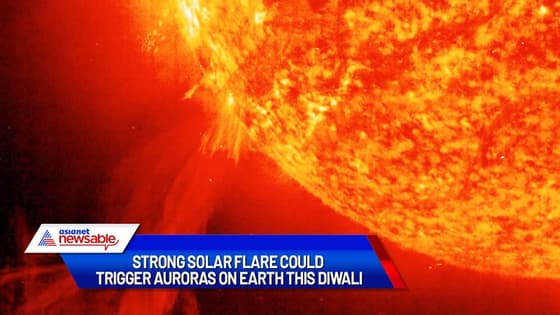
Strong solar flare expected to light up polar regions of Earth this Diwali
Solar scientists around the world — including at the Center of Excellence in Space Sciences India (CESSI) at IISER Kolkata are studying the progress of this storm. If the storm does hit on November 4, it could be dubbed the ‘Diwali solar storm’.
In a cosmic coincidence, a solar flare that occurred on the Sun recently has launched a magnetic storm in space which is predicted to hit Earth on November 4, just in time for Diwali lighting up its atmosphere at polar regions in spectacular displays of aurora. The erupted solar flare could affect GPS and communication satellites in the coming days, and also cause auroras over Europe and North America, space agency NASA and the US National Oceanic and Atmospheric Administration (NOAA), a weather agency, said.

“Solar flares are powerful bursts of radiation,” NASA explained in a statement. “Harmful radiation from a flare cannot pass through Earth’s atmosphere to physically affect humans on the ground, however – when intense enough – they can disturb the atmosphere in the layer where GPS and communications signals travel,” it said.
Solar scientists around the world — including at the Center of Excellence in Space Sciences India (CESSI) at IISER Kolkata are studying the progress of this storm. If the storm does hit on November 4, it could be dubbed the ‘Diwali solar storm’.